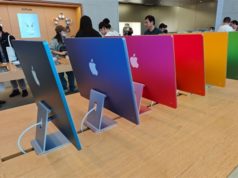Just days after the United States Federal Trade Commission filed a lawsuit against Qualcomm, accusing the company of using unfair anti-competitive tactics in order to gain advantage from its competitors, Apple has joined the list and filed a $1 billion lawsuit against Qualcomm.
Apple says Qualcomm has been charging royalties for technologies they have nothing to do with. As expected, Qualcomm denied this saying that Apple’s claims are baseless.
“Qualcomm broke its promise and has breached its FRAND commitments. Qualcomm illegally double-dips by selling chipsets that allow mobile telephones to connect to cellular networks and then separately licensing (but never to competitors) the purportedly necessary intellectual property.
By tying together the markets for chipsets and licenses to technology in cellular standards, Qualcomm illegally enhances and strengthens its monopoly in each market and eliminates competition. Then, Qualcomm leverages its market power to extract exorbitant royalties, later agreeing to reduce those somewhat only in exchange for additional anticompetitive advantages and restrictions on challenging Qualcomm’s power, further solidifying its stranglehold on the industry. All of this has been forced on Apple because the iPhone and the iPad have required Qualcomm chips,” said Apple.
“While we are still in the process of reviewing the complaint in detail, it is quite clear that Apple’s claims are baseless. Apple has intentionally mischaracterized our agreements and negotiations, as well as the enormity and value of the technology we have invented, contributed and shared with all mobile device makers through our licensing program.
Apple has been actively encouraging regulatory attacks on Qualcomm’s business in various jurisdictions around the world, as reflected in the recent KFTC decision and FTC complaint, by misrepresenting facts and withholding information. We welcome the opportunity to have these meritless claims heard in court where we will be entitled to full discovery of Apple’s practices and a robust examination of the merits,” said Don Rosenberg, executive vice president and general counsel of Qualcomm Incorporated.







